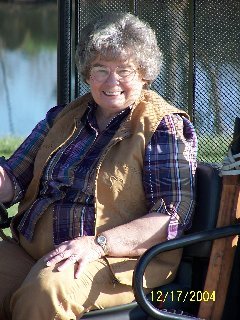Hugs and handshakes. Love and laughter. Music and memories. All of these seemed to reinforce the theme “Reflections of the Past” at the reunion of former members of the Baptist Student Union at Southern Illinois University. We gathered around lovely colorfully appointed tables in the back area of Vandalia’s First Baptist Church’s sanctuary for a delicious soup and sandwich supper Thursday to start our fellowship.
After accidentally starting with three or four couples at a garage sale those many years ago, this reunion on the fourth Thursday and Friday in September has grown to include not just those who were members in the 1940s, but gradually to include those of us in the 1950s and 1960s.
New friendships have been formed and old ones renewed. Group jokes have developed, including the story of the long ago filling station owner who sniffed at the banner on the BSU bus heading to Ridgecrest: “Those college kids don’t even know how to spell bus.” Because I no longer hear well, I was not sure if our new president Ginger Wells explained that the large program title “18th ANNUAL BUS REUNION” was intentional or not, but we liked that spelling and the common memory.
Although no one mentioned A.B. and Rosa Lee Plunkett and the prayer room this year, that too has become part of our common memory. And most folks understood when Nate Adams said he appreciated Ginger’s introduction because we too remembered our former long-time president Helen Galloway’s fun way of introducing him. (Actually I think Nate was a little let down to not be able to enjoy Helen’s embarrassing him.) Bill Eidson, our keynote speaker after supper, added a couple of new stories that will likely become group property as he recalled Doyle Dorm antics. Gene Wells had to take the mike away from him to explain why they fixed that top bunk to fall through with Bill.
Bob and Oleta Barrow made us all nervous when Bob started drawing out from a clear plastic bag the names of four couples to play the Oldie Wed Game. Ginger and Gene (who did the best at knowing each other’s minds), Darrell and Verona Highsmith, and Tom and Delores Gwaltney were called to the platform. Only when the Barrows’ names were drawn next, were we allowed to catch on to the smaller bag hidden within the larger bag. Relaxing then, we even enjoyed that little joke on us. We were just relieved not to have to publicly remember our first kiss, our worst cooking disaster, our spouse’s most irritating trait, and so on, but I suspect most of us tried to recall all those events as we laughed at the chosen ones’ efforts.
A surprise roast for Helen Galloway was a loving attempt to pay her back for all her years of flinging fun-filled insults. However, the roast did not really result in many negative memories, although Jim Robinson made up some. Helen was gracious as well she should have been considering her well-deserved reputation for wicked repartee. Personally, I think she got off easy.
Yet I think Verona’s memory was the most accurate evaluation of Helen’s service to all of us: when Verona was a young girl, Helen came to her church and Verona knew then what she wanted to be like when she grew up. (One of the cutest moments of the evening was when Verona made sure she sat so that she separated Ginger and Darrell after Darrell greeted Ginger with a hug at the start of the Oldie Wed game. Clearly she had achieved Helen’s ability to make us laugh.) Helen enthused over all the Cardinal gifts she found in her gift bag, and we all loved the buttons honoring Helen with her photo that we received.
The reunion choir stayed to practice for the next day, and the rest of us left for a night’s sleep. We were relieved that though the coffee and yummy rolls and muffins would be waiting for the Friday morning gathering at 8:30, if we came to visit and for photo taking, the formal program wouldn’t start until l0:30.
With many of us wearing our Helen Galloway pins, that morning program brought more beautiful music and great inspiration. Vandalia’s Abe Clymer gave us a historical welcome dressed as Abe Lincoln and taught us a little about Lincoln’s service in the legislature at the first state capitol there at Vandalia. Wendell Garrison brought new spiritual insight as he pointed out that John 17 taught us that God loved us as He loved his son Jesus. The reunion choir echoed that with their singing. Lora Blackwell shared both personal experience and practical information as to how we could share with those with less resources than ourselves. (I’m excited that I can make some space on our book shelves by sharing some of those long neglected books.) Darrell Highsmith, who has served around the world as a chaplain, brought reflections on how our past had prepared him and us so that we could benefit others.
After a bountiful catered lunch, we enjoyed more group singing and more beautiful music including Rayford Raby at the piano playing medleys of our favorite hymns. I was so glad I responded to Ginger’s request and had asked for “When I Survey the Wondrous Cross.” Jerry Casey thrilled us with her singing before we were treated to Nate Adams’ informative and challenging address pointing to changes that will come with this century. He shared his confidence that we can meet the challenges.
It was hard to say goodbye to those we won’t see again until next year and with the knowledge that some we will never see again in this life.
Yorktown Virginia
-
On Sunday, after our museum day, Wesley and I drove to Yorktown Va. I am
so glad we ventured out looking for a waterfront on this trip. I had to
mercha...
5 years ago











